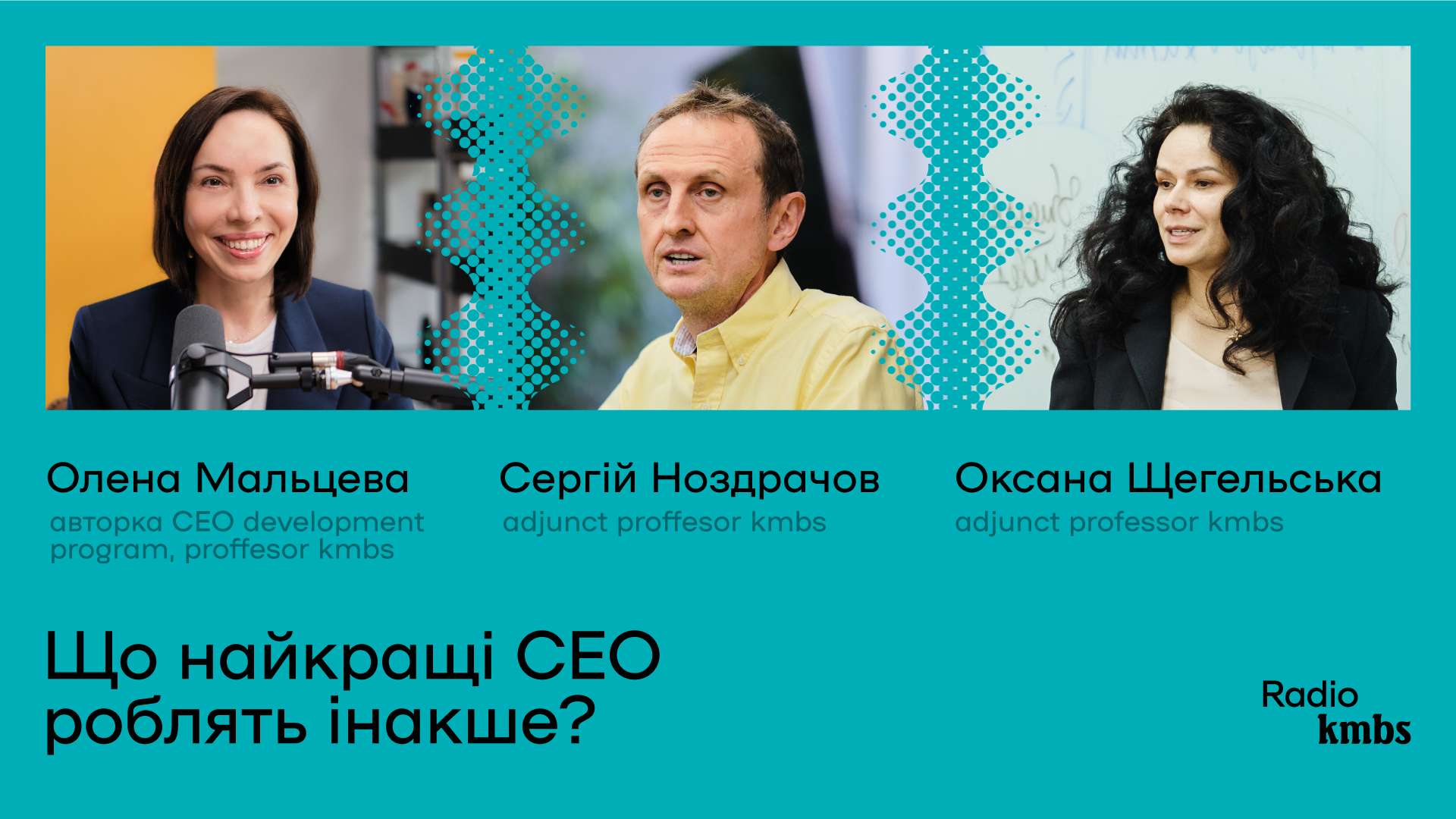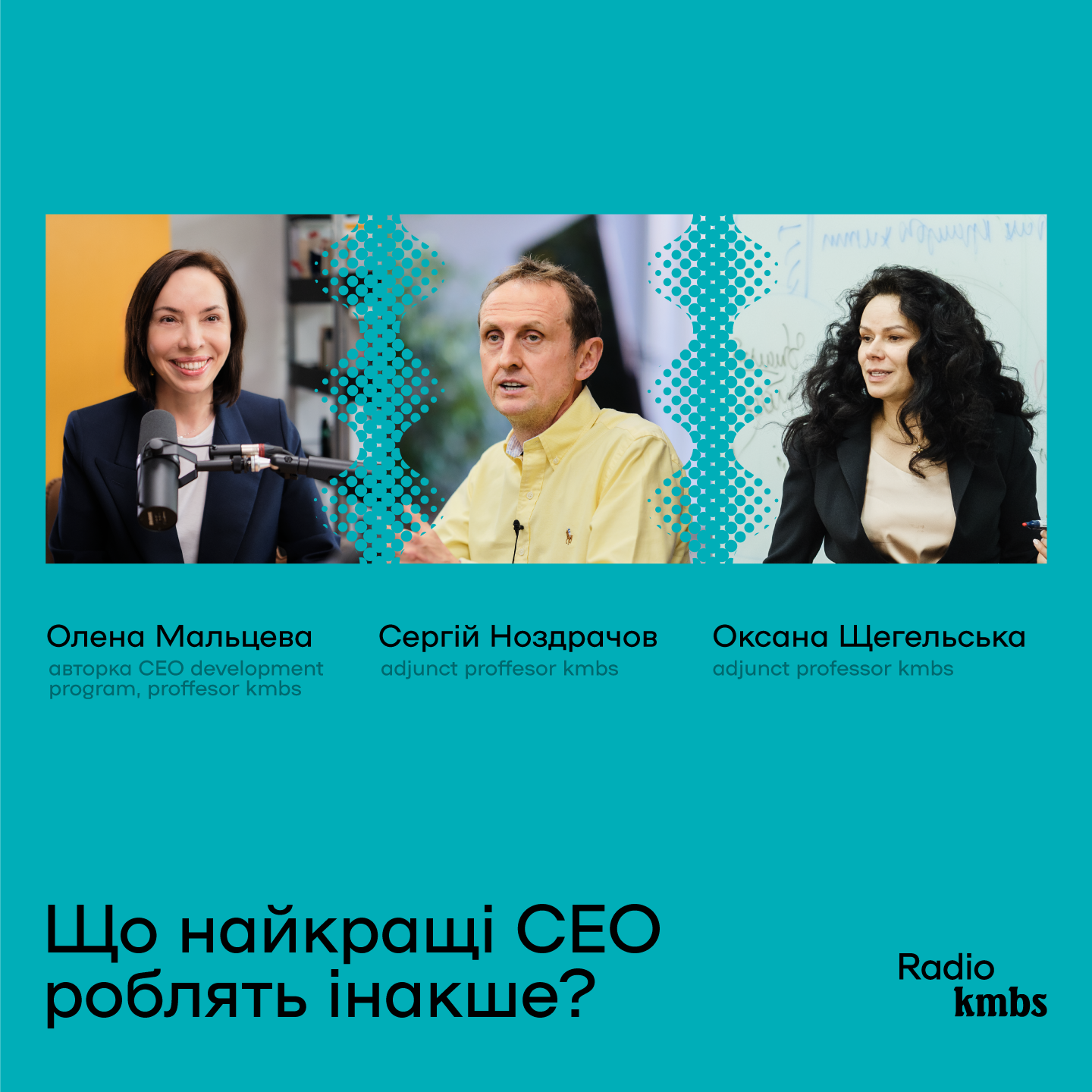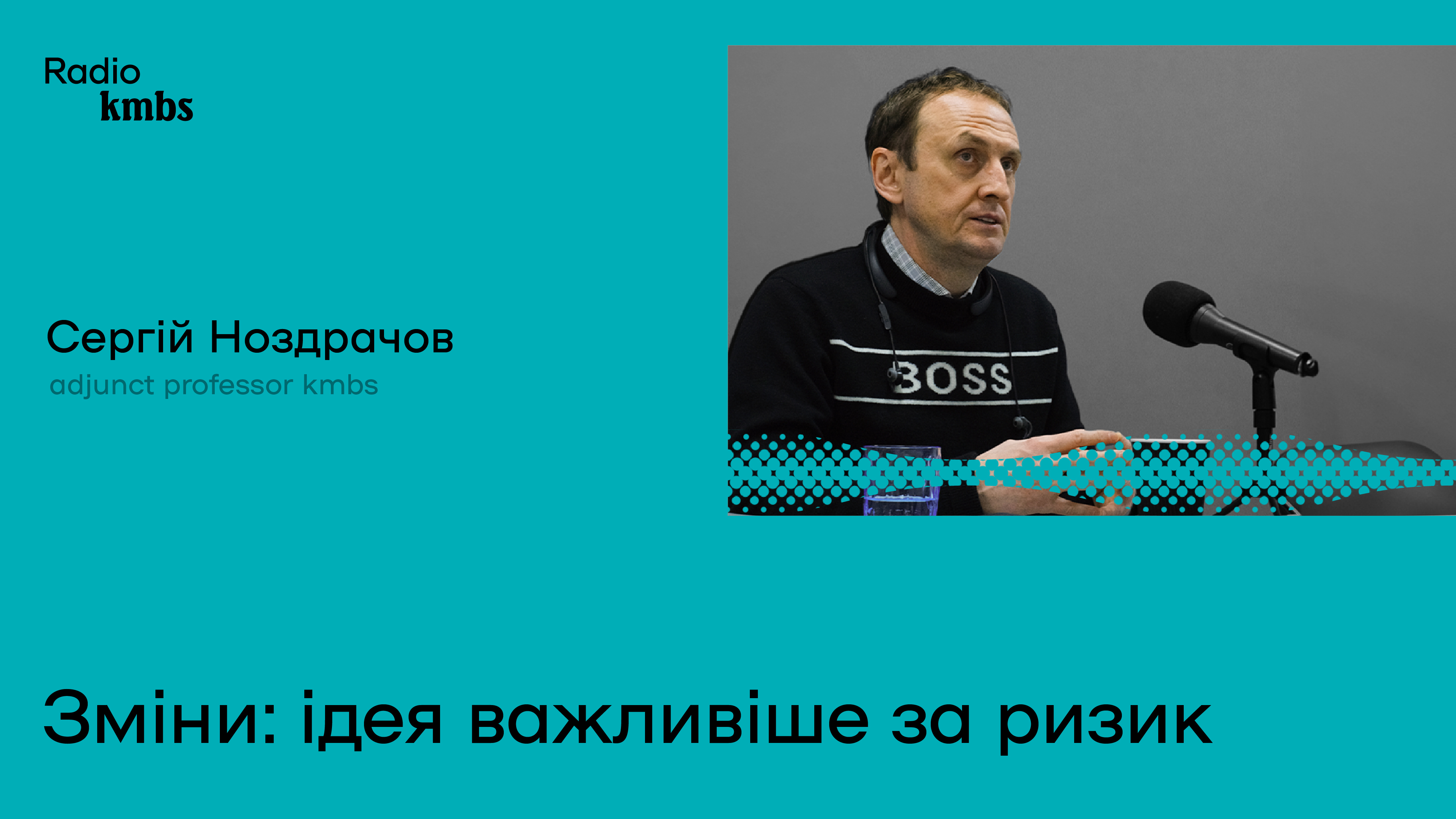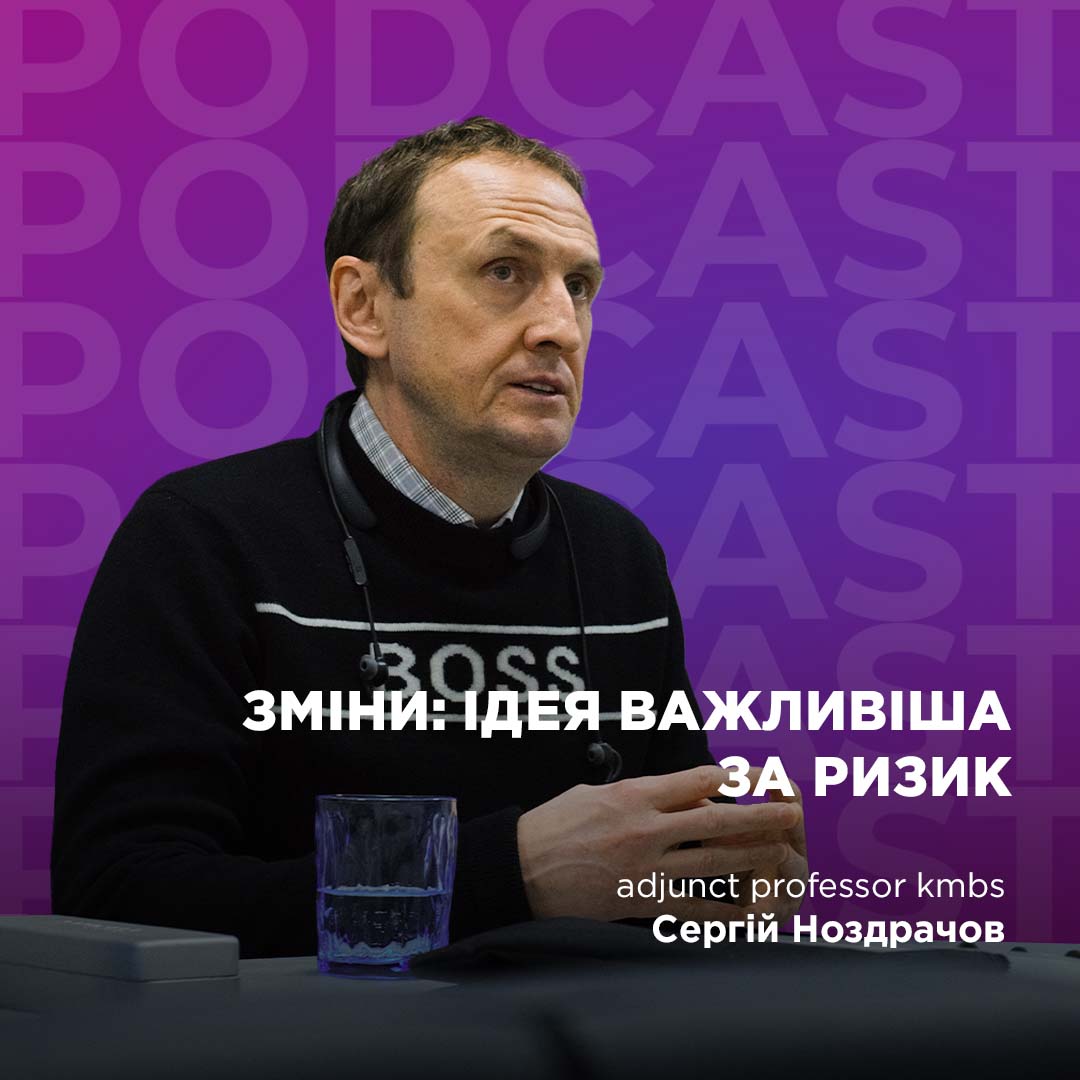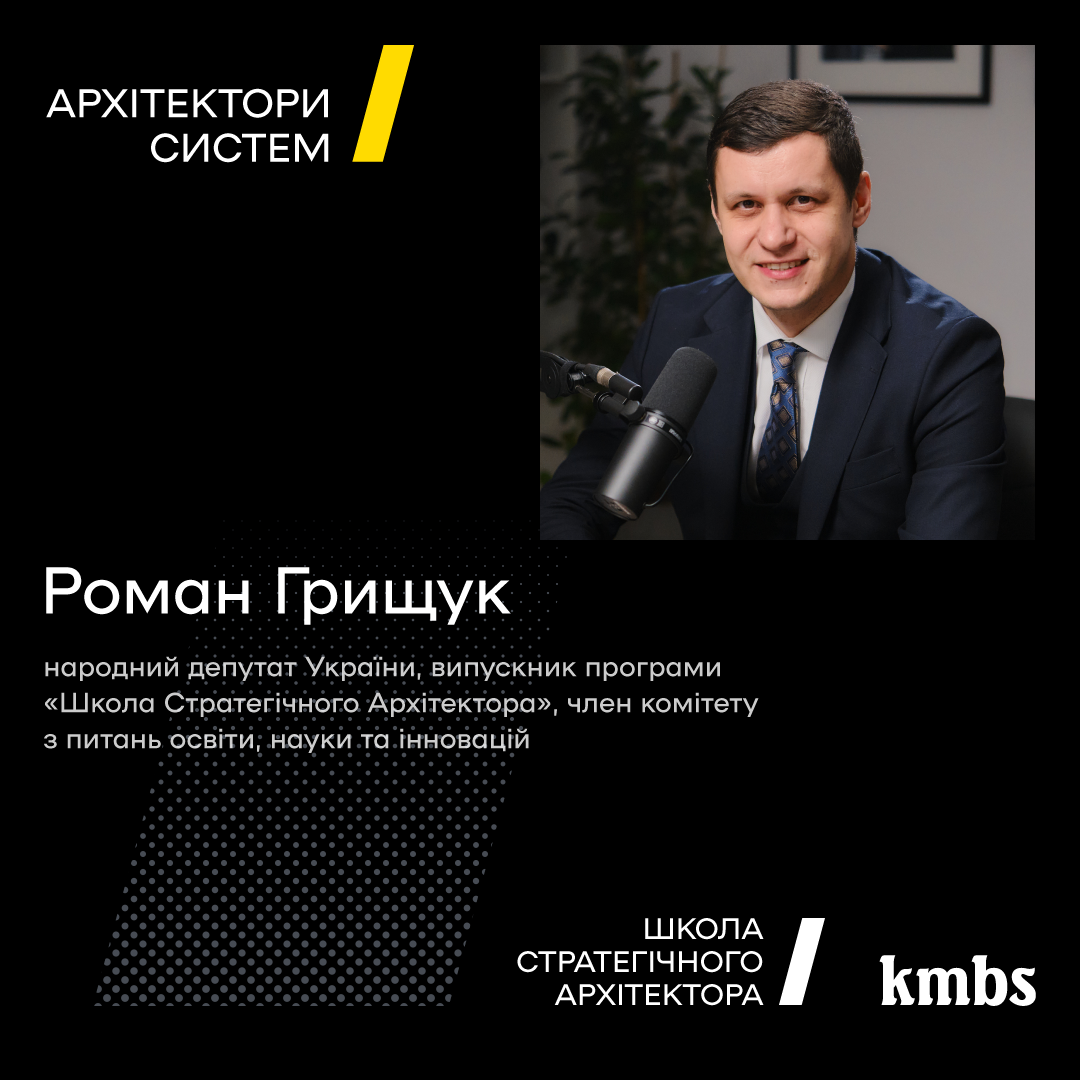Learn first
KMBS latest news in real time

For the latest KMBS events and news, visit KMBS Live at the top right corner of the screen
Open kmbs livedates of programs start
3/3/2025
Format
7 modules 3 days each
10:00 - 18:00
cost
266 000 uah
CEO Development Program
Development of the ability to bring together all components of the business and activate the entire system in order to realize an ambitious strategic idea.
Program's Target Audience:
What participants gain at the Program:
understanding the role of the CEO and the main requirements for it in a company that works in a turbulent world and has leadership ambitions
a comprehensive understanding of business as a system (strategy, customers, people in the organization, finances, processes, communications) and the relationships in this system - due to which to achieve high performance indicators
ability to read and understand the companyʼs strategic idea and translate it into results
reaching a new level of managerial maturity, the ability to keep a strategic focus and not immerse yourself in operational management
approaches to the development of the TOP team: how to build a new corporate culture in which employees do not burn out, the team is more self-organized and works without manual control
practice in argumentation and the ability to succinctly formulate and convey your opinion to the team, customers, owner or shareholders
approaches to work in a complex environment with many unknowns: how to make fast and, at the same time, difficult business decisions
seeing your strengths, your own motivation before making changes in the company
mentoring from teachers and working on a real project for your company
The structure of the program
Prerequisites for program creation
CEO’s cognition and personality
List of topics
Final project
Final project presentations take place in the 7th module
Schedule
Each module lasts for 3 days
Faculty
Olena Maltseva
more details
CORE
Oksana Shchegelska
more details
Adjunct professor
Sergiy Nozdrachov
more details
Adjunct professor
Eduard Maltsev
more details
CORE
Oleksii Gavrysh
more details
Adjunct professor
Olga Shcherbyna
more details
Adjunct professor
Tymur Demchuk
more details
Visiting professor
Mykola Viknianskyi
more details
Visiting professor
Sergiy Komberianov
more details
Adjunct professor
download more
cost
266 000 uah
Apply for the program
Let me know about next date
For more information about the program, please contact
Yelyzaveta Nikitchenko
Call:
Write:

Find out kmbs news and events first
kmbs
live

Новий подкаст: "Стратегічна гнучкість: як аналітичне мислення допомагає адаптуватись до мінливих умо ...
Nearest programs in which participates
back
forward
